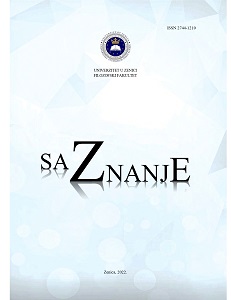RELIGIJSKI ODGOJ U FUNKCIJI PROMICANJA INTERKULTURALIZMA U SAVREMENOJ ŠKOLI
RELIGIOUS EDUCATION IN THE FUNCTION OF PROMOTION OF INTERCULTURALISM IN THE MODERN SCHOOL
Author(s): Adisa Milić, Šejla KadribašićSubject(s): School education, History of Education, Sociology of Education, Sociology of Religion, Pedagogy
Published by: Filozofski fakultet, Univerzitet u Zenici
Keywords: multiculturalism and interculturalism; intercultural competence; religious education; teacher; modern school;
Summary/Abstract: The intercultural dimension of the modern curriculum should be based on the idea of humanistic pedagogy, inherited by all three monotheistic religions. At the core of every religion we find the core of intercultural learning. The formation of intercultural competencies is a demanding process of development and the modern system of education should respond to it. Beside the family, the school as an institution is the second most important factor in promoting universal values, where we can certainly talk about nurturing national and cultural identity, where we can learn to respect spiritual values of different cultures and civilizations, and get the knowledge of their own religion and other religions and their differences within the spiritual heritage of the modern world. Modern educational tendencies are aimed at implementing all educational goals through an integrated curriculum and the best possible application of didactic practices in the process of education. Religious education in this context provides a number of opportunities for quality educational action on the individual to develop the necessary values, become a healthy, built personality, and a useful member of society and the community to which he belongs. Intercultural competencies are developed and learned throughout life, so that the process of formal and non-formal education can be an opportunity to create situations and educational content and strategies, which can encourage their development. Since there is no consensus between theorists and researchers on the dimensions of intercultural competence, the aim of this paper is to examine how religious education can develop intercultural competence, i.e. its dimensions, and to offer some guidelines from teaching practice in the context of modern school. Qualitative methodology was used in the research and the obtained results provide significant guidelines for a better understanding of the development of intercultural competence in the teaching process.
Journal: saZnanje
- Issue Year: 3/2022
- Issue No: 3
- Page Range: 582-595
- Page Count: 14
- Language: Bosnian

